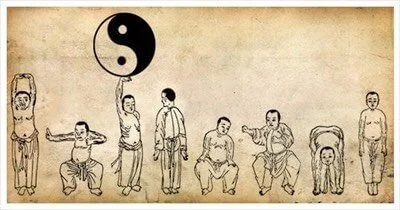My Approach To Therapy
My approach to therapy comes not only from my training as a clinical psychologist, but also from my decades-long training in martial arts, meditation, tantra and breathing, movement and energy arts. So as a certified instructor of tai chi, bagua and qigong, I’ve integrated a holistic East-West perspective into my work as a therapist. Nevertheless, though I utilize a combination of mind-body techniques, I customize my therapy sessions to fulfill your unique needs and background, so not all sessions will look the same for everyone.
Scroll down for a more detailed description of the methods I use in therapy.
Methods
-
Mindfulness-Based Cognitive Behavioral Therapy (MB-CBT) blends the power of mindfulness with cognitive behavioral strategies to help you understand and reshape your thoughts and emotions. This approach allows you to be present with your experiences, breaking free from negative patterns and fostering healthier mental habits. By integrating these techniques, MB-CBT supports you in managing stressful thoughts and emotions, guiding you towards greater emotional balance, resilience, and inner peace.
-
Nonviolent Communication (NVC) is a transformative approach that fosters compassionate and effective communication. By focusing on empathy, understanding, and mutual respect, NVC helps individuals express their needs and feelings without blame or criticism. This method encourages honest dialogue and deep connection, whether you're navigating personal relationships, professional interactions, or resolving conflicts. Embracing NVC can lead to more harmonious and fulfilling relationships, as it empowers you to communicate with clarity and kindness, ultimately creating deeper, more authentic relationships.
-
The Gottman Method is a research-based approach to couples therapy that enhances relationship stability and satisfaction. By focusing on building a strong friendship foundation, managing conflict constructively, and creating shared meaning, this method empowers couples to deepen their emotional connection. Techniques include improving communication, fostering empathy, and nurturing mutual respect. Whether you're looking to repair a struggling relationship or strengthen an already healthy one, the Gottman Method offers practical tools and insights to help you and your partner thrive together.
-
Emotion-Focused Therapy (EFT) is a powerful, evidence-based approach that helps individuals and couples understand and transform their emotional experiences by creating secure bonds. Through exploring and processing emotions in a safe and supportive environment, EFT allows you to uncover deeper feelings, heal past wounds, and build stronger, more authentic connections. This therapy emphasizes the importance of emotional awareness and expression, helping you to navigate and resolve conflicts, enhance intimacy, and foster emotional resilience.
-
Focusing is a gentle yet profound therapeutic approach that helps you connect with your emotions by tuning into your bodily felt sense. This method guides you to access deeper insights and feelings that may be hidden beneath the surface, promoting healing and personal growth. Through Focusing, you learn to listen to your body's wisdom, uncovering what you truly need and want. It's a process of self-discovery and emotional clarity that fosters greater self-awareness, inner peace, and resilience. How to use Focusing
-
Brainspotting is a cutting-edge therapeutic approach that leverages the brain-body connection to access and resolve deep-seated emotional and psychological stresses. By identifying and processing "brainspots," or eye positions linked to trauma and distress, Brainspotting helps you tap into the brain's natural healing abilities. This method allows for profound emotional release and integration, leading to greater mental clarity and well-being.
-
Qigong, Tai Chi, and Bagua are practices based on Chinese martial arts, known for their profound healing effects on the mind and body. These meditative exercises integrate slow, deliberate movements with deep breathing and mental focus, promoting physical health, emotional balance, and spiritual well-being. Regular practice can improve flexibility, strength, and circulation, reduce stress, and enhance overall vitality. By harmonizing the body's energy flow, these arts support healing and longevity, offering a holistic approach to maintaining health and inner peace.
-
Slow sex techniques enhance optimal sexuality by fostering deeper emotional connections, heightened sensitivity, and increased intimacy between partners. By taking the time to savor each moment, couples can explore each other's desires and needs more fully, leading to a more satisfying and fulfilling sexual experience. This slow, mindful approach to sexuality reduces stress, increases pleasure, and promotes overall well-being, allowing for a more profound and intimate connection that strengthens the bond between partners.
-
Psychedelic Integration Therapy is a specialized approach that helps individuals process and make sense of their psychedelic experiences. By providing a safe and supportive space, this therapy facilitates the integration of questions and insights gained during psychedelic journeys, promoting personal growth, emotional healing, and lasting positive change. It combines traditional therapeutic techniques with an understanding of the unique nature of psychedelic experiences, helping individuals harness their transformative potential for enhanced mental health and well-being.


